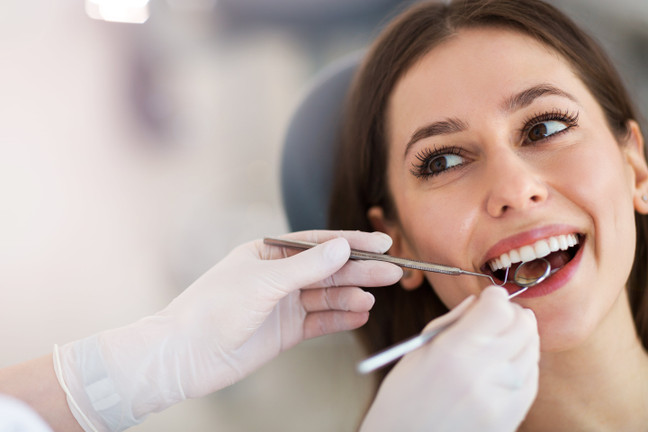Your smile is often the first thing people notice about you — and it all begins with good dental health. A healthy mouth is not just about bright teeth; it’s a vital part of your overall well-being. Poor oral care can lead to gum disease, cavities, bad breath, and even affect your heart and digestive health.
Maintaining dental health doesn’t have to be complicated. With the right daily habits, a balanced diet, and mindful care, you can protect your teeth and gums for a lifetime. Let’s explore what dental health truly means, why it matters, and how you can naturally improve it.

Dental health refers to the condition of your teeth, gums, tongue, and mouth. It involves keeping your mouth free from infections, decay, and other problems that can affect speaking, eating, and smiling comfortably.
Your mouth is like a mirror that reflects your overall health. For example, inflammation in the gums can be linked to chronic conditions such as diabetes or heart disease. Therefore, good oral hygiene is not only about beauty but also about long-term physical well-being.
Taking care of your dental health means brushing regularly, eating smart, staying hydrated, and getting routine dental checkups. These simple actions protect you from tooth decay, gum disease, and other oral problems that can affect your daily life.
Before learning how to improve your dental health, it helps to understand what threatens it most. Here are some of the most common oral issues people face:
Each of these problems can be prevented or reduced by adopting better daily care routines and making small lifestyle changes.
Building consistent oral care habits is the foundation of good dental health. Here’s what you can do every day to keep your teeth and gums in top condition:
This is the most basic yet powerful habit. Brush your teeth for at least two minutes in the morning and before bed. Use gentle, circular motions to clean every surface, including your tongue and gums.
Flossing removes food particles and plaque between teeth — areas that your brush can’t reach. Doing this daily prevents cavities and gum inflammation.
Rinsing helps reduce bacteria, prevent odor, and give you fresher breath. Choose alcohol-free options to avoid dryness in your mouth.
Drinking plenty of water helps wash away food debris and supports saliva production, which protects your teeth from harmful acids.
Sugar and acid weaken your enamel, increasing the risk of cavities. Try reducing soft drinks, sweets, and processed snacks to support better dental health.
What you eat directly impacts your dental health. Nutrient-rich foods strengthen your teeth, while poor diets can lead to decay and gum problems. Here are some tooth-friendly foods:
Avoid sticky candies and soft drinks, which feed bacteria and promote decay. A balanced diet is one of the easiest and most natural ways to support your dental health.
Beyond brushing and diet, your lifestyle also plays a big role in maintaining oral hygiene.
For more dental health tips and guidance on maintaining a healthy smile, visit PurDentix.
Your mouth is the gateway to your body. When bacteria in your mouth build up, they can enter your bloodstream and affect other organs. Studies show that oral infections can increase the risk of heart disease, diabetes, and respiratory problems.
Similarly, conditions like stress or vitamin deficiencies can appear first as symptoms in your mouth — such as gum bleeding or dryness. By taking care of your dental health, you’re also supporting your body’s defense system and overall vitality.
A healthy mouth improves confidence, digestion, and even speech clarity — proving that oral care is a key part of holistic wellness.
Bad breath can be embarrassing, but it’s often preventable with simple steps. To keep your mouth feeling fresh and clean:
Small natural habits like these can make a big difference in your dental health and confidence.
There are many misconceptions about oral care that can actually harm your teeth. Let’s clear up a few common ones:
Understanding the truth about oral hygiene helps you build habits that last a lifetime.
Just like fitness or nutrition, consistency is everything when it comes to dental health. Missing one day of brushing or skipping regular cleanings might not show effects immediately, but over time, it leads to plaque buildup and cavities.
Create a simple daily routine: brush, floss, rinse, and check your mouth for any changes. Keep your toothbrush clean, replace it every three months, and never share it with others.
Most importantly, make your dental care routine enjoyable — use a minty paste you like, listen to music while brushing, or reward yourself for maintaining the habit.
Your mouth deserves the same care and attention as the rest of your body. By maintaining good dental health, you not only protect your smile but also boost your confidence and overall wellness.
Brush daily, eat nutritious foods, stay hydrated, and make regular dental visits part of your lifestyle. Remember, prevention is always easier and more comfortable than treatment.
For more dental health insights and self-care guidance, visit PurDentix.
This product is very helpful for this problem.